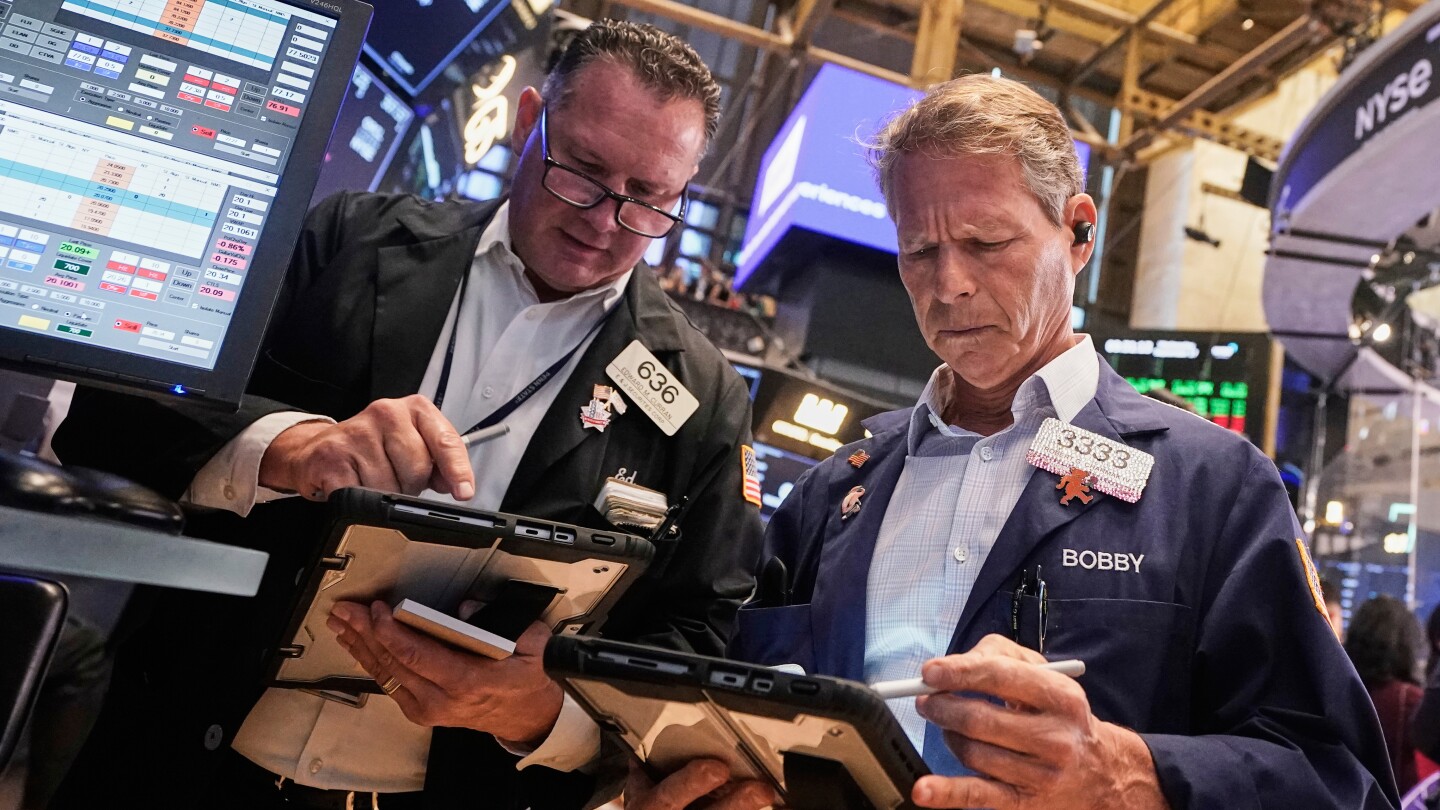Asian shares fall after Trump says he will impose new tariffs
MANILA, Philippines (AP) — Asian shares fell on Friday after President Donald Trump announced plans for new tariffs including 100% import taxes on pharmaceutical drugs starting Oct. 1.
Trump said Thursday on his social media site that foreign makers of furniture and cabinetry were flooding the United States with their products and that tariffs must be applied “for National Security and other reasons.”
He said foreign-made heavy trucks and parts are hurting domestic producers. However, most such trucks are either made in America or are U.S. brands made in Canada or Mexico.
U.S. futures slipped while oil prices rose.
Most Asian indexes were in the red, with Japan’s Nikkei 225 down around 0.3% to 45,629.79.
Sumitomo Pharma Co.’s shares lost 5.2% while Chugai Pharmaceutical sank 3.9%.
Government data on Friday showed inflation in the Tokyo area rose 2.5% year-on-year in September, matching the pace in August but falling below expectations of an uptick to 2.8%. Inflation, however, was still above the Bank of Japan’s 2% target, leading to speculation about a rate hike later this year.
South Korea’s Kospi tumbled 2.5% to 3,384.58 in a third consecutive session of losses amid growing worries over prolonged tariff negotiations with the U.S.
In Chinese markets, Hong Kong’s Hang Seng index fell 0.7% to 26,313.66 while the Shanghai Composite index was down 0.1% to 3,850.07.
Australia’s S&P/ASX 200 rose 0.2% to 8,790.20. India’s BSE Sensex fell 0.7% while Taiwan’s Taiex lost 1.5%.
On Thursday, Wall Street stumbled to a third straight loss as U.S. stocks gave back more of their big gains for the year so far.
The S&P 500 fell 0.5% to 6,604.72, marking its longest losing streak in more than a month. The Dow Jones Industrial Average dropped 0.4% to 45,947.32, and the Nasdaq composite sank 0.5% to 22,384.70. All three indexes are still near their records set at the start of the week.
Stocks felt pressure from reports showing the U.S. economy may be stronger than economists thought. While that’s encouraging news for workers and for people looking for jobs, it could make the Federal Reserve less likely to cut interest rates several times in the coming months.
The Fed just delivered its first cut of the year last week, and officials had penciled in more through the end of next year. That was critical for Wall Street after U.S. stocks shot to records since April in large part because of expectations for rate cuts. Easier rates can boost the economy and make investors more willing to pay high prices for stocks and other investments.
If the Fed doesn’t cut rates as often as investors expect, it would empower criticism that the U.S. stock market is too expensive after rising so much, so quickly.
Treasury yields ticked higher in the bond market as traders pared bets for the number of upcoming cuts to rates by the Fed. The yield on the 10-year Treasury rose to 4.17% from 4.16% late Wednesday.
“For Asia today, it means traders wake up to a market where gravity has reasserted itself. The global $15 trillion rebound year-to-date now feels stretched against yields rising even for all the ‘right’ reasons( stronger growth),” Stephen Innes of SPI Asset Management wrote in a commentary. “It doesn’t take much for enthusiasm to wobble, at lofty peaks, and in this tape, fatigue is dangerous.”
In other dealings early Friday, benchmark U.S. crude added 30 cents to $65.28 per barrel. Brent crude, the international standard, climbed 25 cents to $69.67 per barrel.
The U.S. dollar edged down to 149.73 Japanese yen, from 149.75 yen. The euro rose to $1.1676 from $1.667. ___
AP Business Writer Stan Choe contributed.


